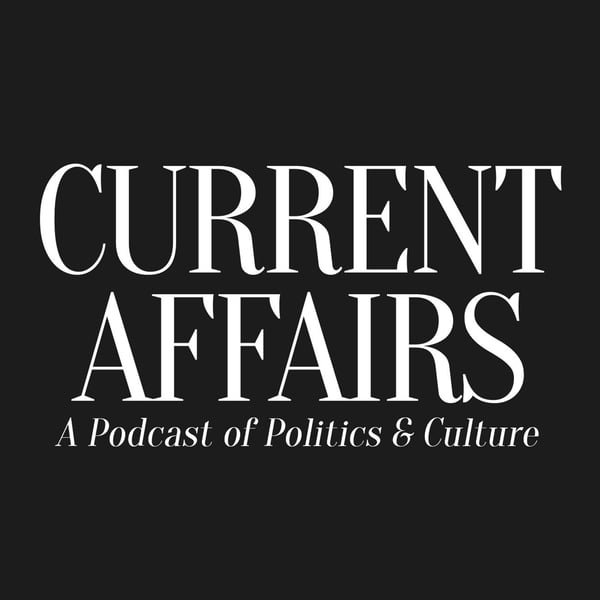PREVIEW: Josh Davis on Christian socialism
Current Affairs
Current Affairs
4.4 • 645 Ratings
🗓️ 14 February 2020
⏱️ 6 minutes
🧾️ Download transcript
Summary
Transcript
Click on a timestamp to play from that location
| 0:00.0 | The right wing basically dominates the discussion around religion. |
| 0:03.0 | And we believe that that's something that must be opposed. |
| 0:06.0 | Some of the reasons why I think this is the case that the history has been forgotten and that we lack these organizations and institutions. |
| 0:15.0 | I think we can look at the figure of Reinhold Niebuhr, I think, as a good example, a point of reference for understanding what has happened |
| 0:21.9 | and where we are. You may have heard the name Reinhold Niebuhr, your audience. Barack Obama referenced |
| 0:27.1 | him a lot. David Brooks tends to reference him a lot as like a wise spiritual figure for the kind |
| 0:34.5 | of politics that David Brooks is always touting. But Niebuhr himself was |
| 0:38.6 | always a socialist, actually, and he began as a very harsh critic of liberalism and particularly |
| 0:45.5 | the sentimentality of liberalism and how politically ineffective it was. And he started to attack |
| 0:53.1 | liberalism in the 1930s from a specifically |
| 0:56.0 | Marxist perspective. But over time, he started to think that Marxism itself tended to be |
| 1:01.7 | still too idealist. It didn't really have a realistic enough view of human nature. And so he |
| 1:08.1 | started to become critical of both liberalism and these certain forms of like revolutionary socialist practice. |
| 1:15.8 | What he was looking for and started to articulate was a combination of realism and politics that was based on a non-naive view of human nature that combined moral idealism at the same time. |
| 1:30.3 | So what he wanted was for this realism to be an antidote to American liberal sentimentality |
| 1:35.3 | and for the idealism to guard against barbarism, basically. |
| 1:40.6 | But I think what we've seen since the 50s and 60s forward with what Niebuhr articulated, and I should say, |
| 1:50.3 | Niebuhr was hugely influential for decades in this period publicly. |
| 1:56.8 | He was recognized. |
| 1:58.0 | He was very engaged in political discussions. |
| 1:59.9 | And so as he began to articulate this, it influenced many people. And I think what has happened is that his anti-liberal realism became a kind of conservatism. And it became the kind of conservatism that we see expressed in First Things magazine, for example. Newhouse, who was involved in founding First Things magazine, was very |
| 2:17.5 | convinced by this kind of anti-liberal, the religious anti-liberal expression. But on the other |
... |
Please login to see the full transcript.
Disclaimer: The podcast and artwork embedded on this page are from Current Affairs, and are the property of its owner and not affiliated with or endorsed by Tapesearch.
Generated transcripts are the property of Current Affairs and are distributed freely under the Fair Use doctrine. Transcripts generated by Tapesearch are not guaranteed to be accurate.
Copyright © Tapesearch 2025.

